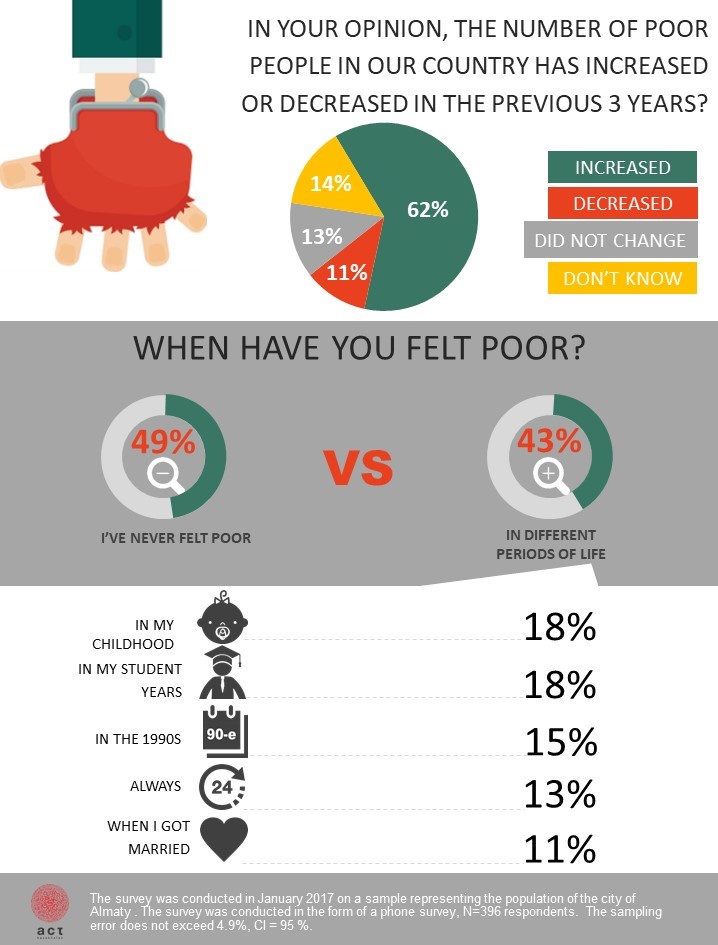ACT Kazakhstan tried to find out the perceptions of poverty among Almaty residents, feelings about the dynamics of poverty in the country, as well as the amount of income at which a person is poor. According to the survey, most of the respondents (62%) believed that the number of poor people in Kazakhstan had increased in the last three years. Of them, 46% believed that it had increased significantly, 16% felt a slight increase. Only 11% believed that the number of poor people had decreased (of them, 9% believed that it had decreased significantly, 16% felt a slight decrease). 13% of the respondents noted no change in the number of poor people in three years.
By age groups, the middle-aged and senior people (35-54 years) were more pessimistic since they believed the number of poor people had increased significantly. On the contrary, young people (18-24 years) thought that the situation had not changed or had even improved since they believed the number of poor people had decreased. According to the survey, one-third of Almaty residents consider the income of KZT 30,000-50,000 per family member as a sign of poverty. 16% of the respondents consider the income of KZT 20,000-30,000 per family member as a sign of poverty.
49% of Almaty residents stated they had never felt poor. Of them, 25% had the personal income of KZT 50,000-100,000, and 22% had the personal income of KZT 100,000-200,000. Out of the respondents who had ever felt poor, some felt poor in their childhood or student years (18% each), 15% felt poor in the 1990s, 13% said they always feel poor, and 11% felt poor after getting married.

The survey was conducted in January 2018 among the population of the city of Almaty on a sample representing the city population. The survey was conducted in the form of a personal interview. The sample size was 396 respondents. The sampling error does not exceed 4.9%, CI = 95%. The use of survey materials is permitted with the obligatory mention of the author of the survey.





